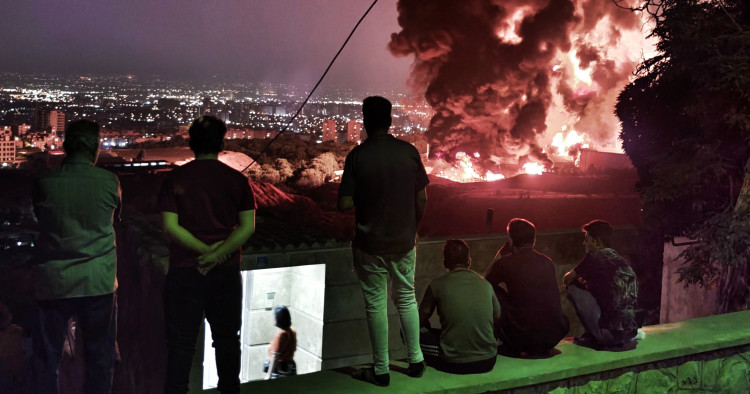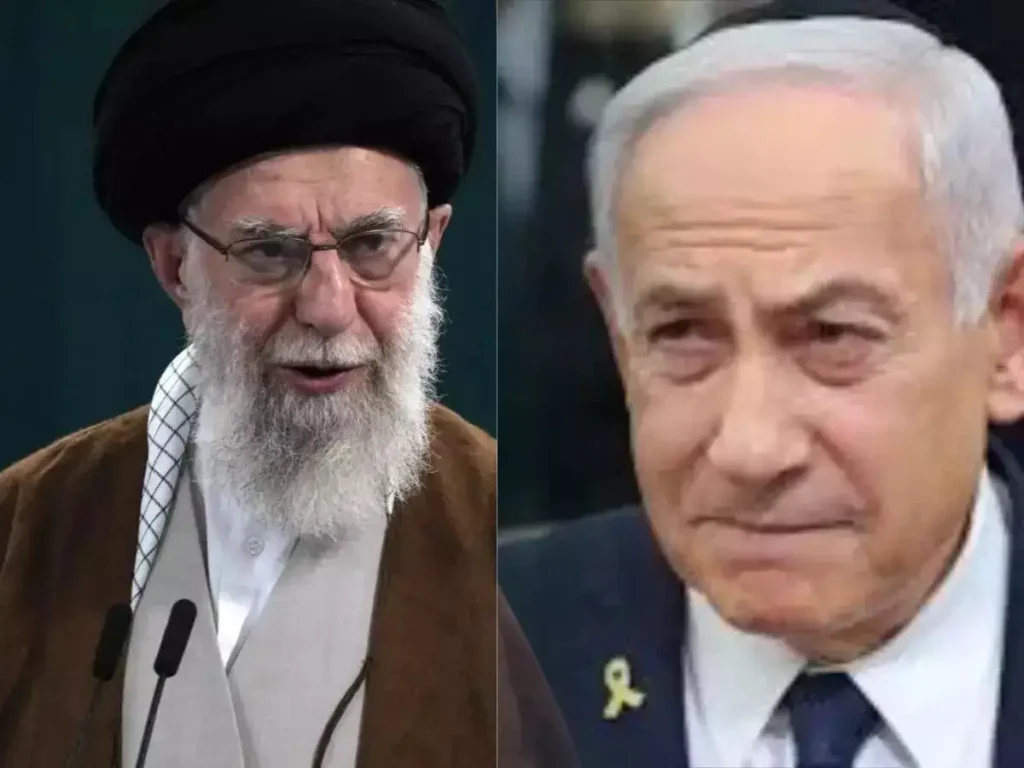
The Middle East has once more become the center of a rapidly escalating crisis as Israel and Iran engage in direct conflict, transforming a long-standing covert rivalry into an open confrontation.
dangerous escalation, raising fears of an all-out regional conflict.
The situation started to unfold when an Israeli airstrike, thought to have been sanctioned at the topmost level, struck an Iranian advisory facility in Damascus, Syria, resulting in the deaths of multiple senior officials from Iran’s Islamic Revolutionary Guard Corps (IRGC), including a senior commander with close links to Quds Force activities. This bold attack, perceived by Tehran as a clear violation of its sovereignty, was quickly termed a war declaration, prompting a strong and unmatched missile retaliation from Iran aimed at key locations in Israel’s northern area, such as Haifa and segments of the Golan Heights. Despite the effectiveness of Israel’s sophisticated Iron Dome defense system in intercepting most incoming rockets, some missiles bypassed the shield, resulting in casualties, damage to property, and significant panic among civilians, leading to emergency school closures and evacuation orders in multiple northern towns.
Israel swiftly retaliated with synchronized air and drone assaults targeting Iranian weapon storage facilities, training sites, and militia positions, not just in Syria but also throughout Iraq’s western deserts, where pro-Iranian militias function with considerable freedom. Simultaneously, Hezbollah militants in Lebanon increased cross-border rocket strikes on Israeli targets, while Iran’s partners in Iraq and Yemen—specifically Kata’ib Hezbollah and the Houthi forces—conducted independent attacks on U.S. military sites and energy installations in the Gulf area, escalating the conflict’s international dimensions. Amid the turmoil, former President Donald Trump, addressing a major rally in Florida, openly condemned President Biden’s response to the crisis, labeling him as weak and claiming that “America cannot sit idly by while its allies suffer,” and stressed that “if Biden won’t take action, I will,” implying that if he were to return to office, the U.S.would adopt a firm military position to discourage Iran and maintain Israel’s right to self-defense.

Trump’s statements were received positively and negatively—admired by conservatives as an essential display of strength and criticized by Democrats and anti-war organizations that cautioned such remarks might lead to increased tensions. In the meantime, the Biden administration, while officially advocating for diplomacy, has subtly increased its military presence in the area, deploying more naval units to the eastern Mediterranean and improving intelligence collaboration with the Israeli Defense Forces. Backchannel discussions facilitated by European partners and Gulf Arab nations have thus far not yielded any significant progress, while China and Russia have expressed backing for Iran’s “right to counter aggression.”
widening the geopolitical rift. U.S. officials, such as Secretary of State Antony Blinken, have called on all sides to show restraint, cautioning that a widespread conflict could disrupt global oil supplies, endanger commercial shipping in the Strait of Hormuz, and lead to an unparalleled refugee crisis. The United Nations Security Council held an emergency meeting, but, as anticipated, could not achieve a consensus because of vetoes from permanent members with divergent interests. At the same time, major cities like Tel Aviv, Beirut, Baghdad, and Tehran remain alert, dealing with frequent air raid sirens, while hospitals are overwhelmed with a surge of civilian injuries and trauma cases.
The conflict has already affected energy markets economically—oil prices increased by more than 10%, and international shipping companies have started redirecting vessels to steer clear of high-risk areas. Human rights groups have raised alarms regarding the use of explosive devices in populated regions, cautioning that random assaults could be classified as war crimes. In Israel, Prime Minister Benjamin Netanyahu has promised to escalate the military operation “until Iranian threats are eliminated.”
In a nationwide speech, Iran’s Supreme Leader Ayatollah Ali Khamenei declared that “resistance is the sole option remaining” and highlighted that Iran will not submit to external pressure, defining the struggle.
as an element of a wider ideological struggle against Western supremacy and Zionist growth
. Both leaders seem reluctant to retreat, and their statements have further entrenched rigid stances on either side. In the U.S., Trump’s remarks have reignited discussions on America’s involvement in the Middle East, with some politicians calling for increased backing for Israel, while others warn that entering an additional conflict in the region might lead to severe repercussions
The Pentagon is prepared, evaluating situations that involve missile strikes on U.S. embassies or bases as potential reasons for direct engagement. With U.S. public opinion polarized, particularly during an election season, the prospect of Trump regaining power and pursuing a more assertive Middle East policy continues to be a significant concern. The regional circumstances keep worsening, with concerns that any additional escalation—whether deliberate or unintended—might trigger a chain reaction involving various states and non-state entities, potentially resulting in a wider Sunni-Shia conflict with consequences reaching into South Asia and North Africa. The globe observes with concern as one of the 21st century’s most perilous rivalries hangs on the edge of chaotic conflict, while leaders make instantaneous choices that could shape the geopolitical landscape for years ahead


